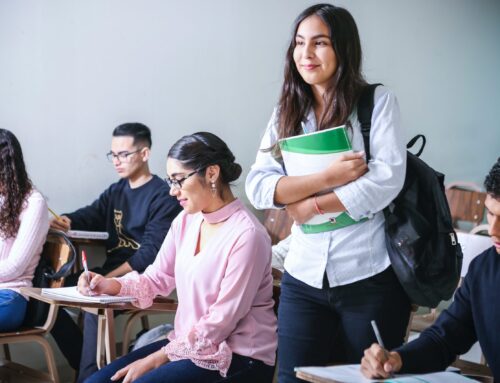By 2023, nearly 400 mental health support teams will be working with and in schools and colleges attended by almost 3 million pupils in England, according to the Department for Education. It’s now compulsory for all schools to teach pupils about mental health and wellbeing as part of health and relationships education.
Mental Health Support Teams (MHSTs) is a new service designed to help meet the mental health needs of children and young people in primary, secondary and further education (primarily for ages five to 18), by providing mental health support in schools, colleges and other education settings. Taking a coordinated and evidence-informed approach to mental health and wellbeing in schools and colleges leads to improved pupil and student emotional health and wellbeing. This can help with their learning.
Moving away from a targets-led approach
This student-centred approach is widely different to how mental health has been treated in schools historically. Following our recent mdeducational Foundation roundtable, former assistant head teacher and now PhD researcher Dave McPartlan shared his views on how recent education policy has contributed towards schools being at least partially responsible for the deteriorating mental health of the young people they serve.
In his blog, Dave notes how “from the 1970s onwards, successive governments built upon the work of previous administrations as a culture fuelled by competition seeped in to, subsumed and changed school values forever.” Governments and OFSTED pushed the agenda that the only currency that counted was exam results.
Dave observes that “the introduction of targets and school league tables filtered down to create a culture of performativity. This was taken to extremes by teachers who were in fear of failure; failure not of their students but of reaching their ever increasing, continuously stretched and often unrealistic targets. This had little to do with child-centred education.”
Giving young people the support they need
Dave McPartlan supports the development of a non-judgemental culture, which he notes is difficult when exam results are still prized at all costs, “where we’re getting children to compete with each other, or compete with the system”. Instead, he believes the focus should be on training young people to look after themselves, to support each other, and to know where to go if they do need help.
Also attending our roundtable, Dr Sue Roffey (author, academic, psychologist and social activist), agreed that schools need to take a different approach. She believes at least part of the solution lies in promoting positive relationships where teachers believe in the best of young people Pupils need to feel that their efforts and progress are valued, not only in comparison with others. Personal bests are a way of approaching learning that enables young people to maintain self-esteem. Sue agrees with Dave that much of what is happening – or not happening – in both schools and society is contributing to the mental health problems students face.
The role of Mental Health Support Teams
The question remains whether the government’s new initiatives with Mental Health Support Teams (MHSTs) will go far enough to make a meaningful difference to young people’s mental health support.
According to the Department of Education, Mental Health Support Teams have three core functions:
- to deliver evidence-based interventions for mild-to-moderate mental health issues;
- support the senior mental health lead (where established) in each school or college to introduce or develop whole school or college approach and;
- give timely advice to school and college staff, and liaise with external specialist services to help children and young people to get the right support and stay in education.
In a December 2021 review and evaluation of the work undertaken by MHSTs in supporting schools to deliver whole school approaches to mental health, it was found that overall MHSTs are providing an extremely valuable input to the development of schools’ capacity and confidence to address mental health issues in young people.
However, while there is emerging evidence of positive impacts arising from this work, the same research indicated too that a common framework for understanding, implementing, and measuring the impacts of whole school approaches to mental health still needs to be developed. One reviewer noted that “we encourage schools, MHSTs and other services involved in whole school approaches to keep ‘pupil voice’ at the centre of their work, and share good practice and resources to best capture the views of children and young people when developing this.
Creating a culture of success
Dave McPartlan agrees that “we need to listen to what young people are telling us and return to a school value base that has its foundations in child centred approaches”. The aim is to embed a culture of openness and forge stronger links between education and health, and in doing so to radically rethink what we prioritise and incentivise in our schools. Only then will there be a foundational change to the education system that positions positive mental health at the heart of all teaching and learning.
mdeducational Foundation is on a mission to provide grants to place mental health professionals into sixth forms and further education establishments across the UK and Ireland for up to 3 years. If you’re interested in working with us to support your young people in their wellbeing, contact us today.




